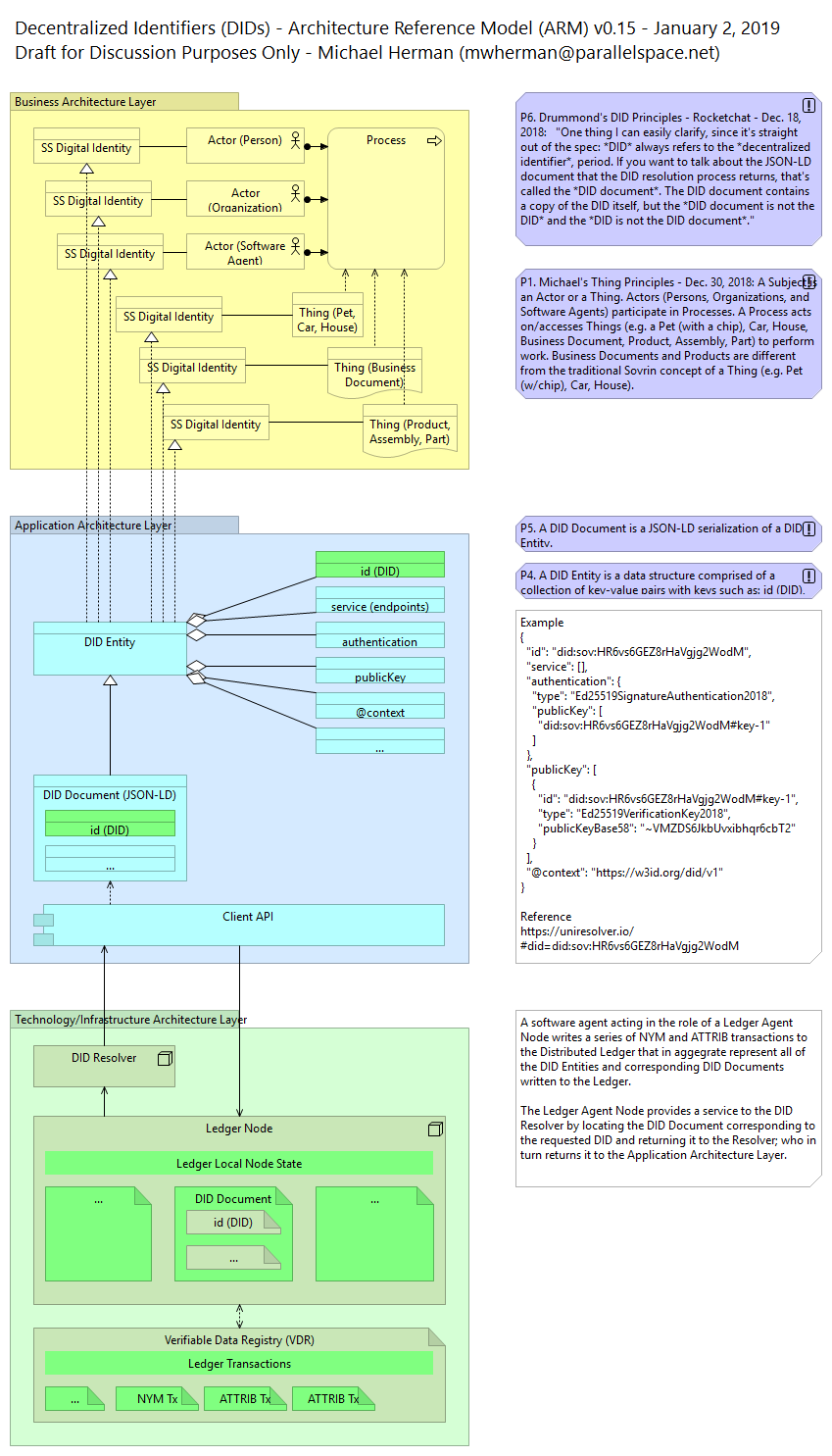| SS Digital Identity | |
| SS Digital Identity | |
| SS Digital Identity | |
| Actor (Person) | |
| Actor (Organization) | |
| SS Digital Identity | |
| Process | |
| Thing (Pet, Car, House) | |
| SS Digital Identity | |
| Thing (Product, Assembly, Part) | |
| SS Digital Identity | |
| Actor (Software Agent) | |
| Thing (Business Document) | |
| DID Entity | |
| id (DID) | |
| service (endpoints) | |
| authentication | |
| publicKey | |
| @context | |
| ... | |
| DID Document (JSON-LD) | |
| id (DID) | |
| ... | |
| Client API | |
| Verifiable Data Registry (VDR) | |
| ... | |
| NYM Tx | |
| ATTRIB Tx | |
| ATTRIB Tx | |
| Ledger Node | |
| ... | |
| DID Document | |
| id (DID) | |
| ... | |
| ... | |
| DID Resolver | |
| P6. Drummond's DID Principles - Rocketchat - Dec. 18, 2018: "One thing I can easily clarify, since it's straight out of the spec: *DID* always refers to the *decentralized identifier*, period. If you want to talk about the JSON-LD document that the DID resolution process returns, that's called the *DID document*. The DID document contains a copy of the DID itself, but the *DID document is not the DID* and the *DID is not the DID document*." | |
| P5. A DID Document is a JSON-LD serialization of a DID Entity. | |
| P1. Michael's Thing Principles - Dec. 30, 2018: A Subject is an Actor or a Thing. Actors (Persons, Organizations, and Software Agents) participate in Processes. A Process acts on/accesses Things (e.g. a Pet (with a chip), Car, House, Business Document, Product, Assembly, Part) to perform work. Business Documents and Products are different from the traditional Sovrin concept of a Thing (e.g. Pet (w/chip), Car, House). | |
| P4. A DID Entity is a data structure comprised of a collection of key-value pairs with keys such as: id (DID), service (endpoints), authentication, publicKey, @context, etc. | |

